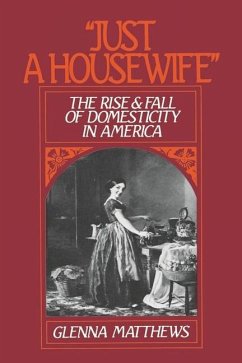The author shows how the nineteenth century's 'cult of domesticity' had invested the home with great importance - as the centre of republican virtue, as the source of religious values and as an area of heady female responsiblities. But this emphasis meant that women were relegated to the domestic sphere, especially when Darwin's 'survival of the fittest' doctrine seemed to indicate that women were physically inferior to men. Ironically, the industrialization of the home in the early twentieth century failed to improve women's lot; on the contrary, it helped lose the home its place of centrality in American culture and produced a terrible dilemma for women by urging them to go into the work place but offering them very little social support for doing so.
This volume depicts the changing attitudes towards domesticity in this country, from widespread reverence for the home in the nineteenth century to the lack of respect and attention that house-wives have received and continue to receive in this century. Examining novels, letters, popular magazines, and cookbooks, Matthews argues that the culture of professionalism in the late nineteenth century and the culture of consumption that came to fruition in the 1920s combined to kill off the "cult of domesticity".
Hinweis: Dieser Artikel kann nur an eine deutsche Lieferadresse ausgeliefert werden.
This volume depicts the changing attitudes towards domesticity in this country, from widespread reverence for the home in the nineteenth century to the lack of respect and attention that house-wives have received and continue to receive in this century. Examining novels, letters, popular magazines, and cookbooks, Matthews argues that the culture of professionalism in the late nineteenth century and the culture of consumption that came to fruition in the 1920s combined to kill off the "cult of domesticity".
Hinweis: Dieser Artikel kann nur an eine deutsche Lieferadresse ausgeliefert werden.








